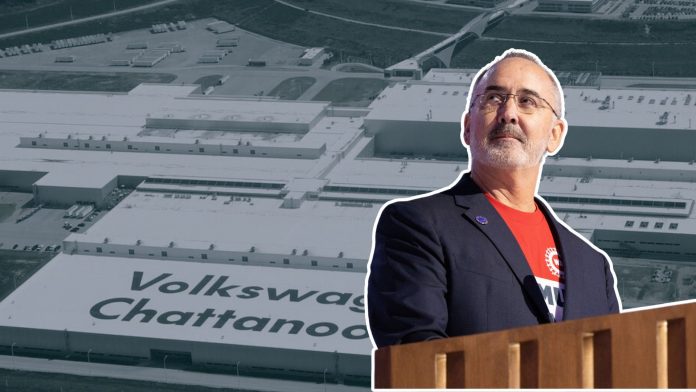Volkswagen has extended a proposal to its newly unionized workforce at the Chattanooga, Tennessee, assembly plant, offering a 14% wage increase over four years, profit-sharing opportunities, and improved healthcare benefits. This marked a significant development as the automaker negotiated its first contract with the United Auto Workers (UAW) union, which secured representation for the plant’s employees in April 2024.
The proposal also includes profit sharing for the first time, a notable addition to the compensation package, as Volkswagen seeks to address worker demands while navigating a challenging labor environment.
UAW representatives criticized the offer as inadequate. Yogi Peoples from the UAW-VW Bargaining Committee expressed frustration, stating, “We’ve been bargaining for months, yet VW isn’t taking our demands seriously. With their record profits and shareholder payouts, they have more than enough to meet our demands for a fair contract.”
UAW President Shawn Fain supported this view, referencing the recent successes in Detroit as standards for Chattanooga workers. After a six-week strike in late 2023, the UAW achieved significant improvements for Ford, General Motors, and Stellantis employees, including a 25% wage increase and cost-of-living adjustments.
Fain’s victory in Chattanooga was historic. It marked the first unionization of a Southern auto plant via election since the 1940s and the first such success at a foreign-owned automaker in the region. However, union efforts in the South have faced resistance, as evidenced by a May 2024 vote at a Mercedes plant in Alabama, where workers rejected unionization.
Broader Challenges for Volkswagen
The Chattanooga negotiations come amid broader labor challenges for Volkswagen in the U.S. and abroad. In Germany, the automaker faces heightened tensions with unions after a record number of workers staged strikes. VW is under pressure to cut costs to compete with Asian automakers and has warned of potential job losses or plant closures if cost-saving measures are not implemented.
This backdrop adds complexity to the Chattanooga talks as Volkswagen balances its financial strategies with the growing strength of organized labor. Meanwhile, the UAW is pursuing its goal of expanding union representation at more than a dozen non-union automakers nationwide, including Toyota and Tesla.



